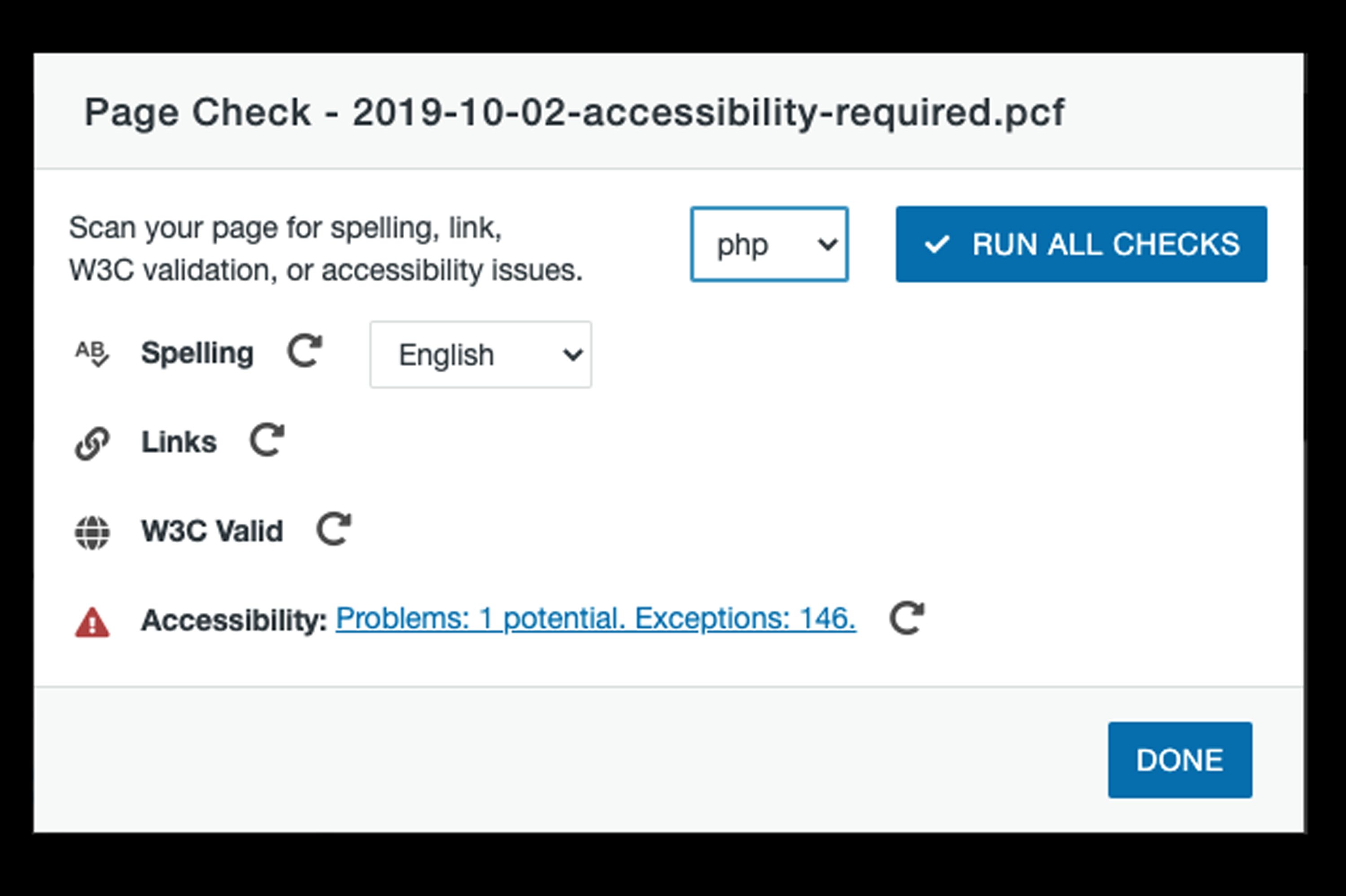The power of the Web is in its universality.
Tim Berners-Lee, W3C Director and inventor of the World Wide Web
Access by everyone regardless of disability is an essential aspect.
As promised, from now on, publishing pages will require passing the Accessibility check. If there are KNOWN errors, it will not publish until you fix them. Likely and Potential problems will not stop you. A completely blank standard page will have potential problems. There are also 119 exceptions on a blank page. Those are things that we admins have disabled the checks for (because they are things like "There is javascript on this page. Make sure the javascript doesn't have accessibility issues." — not helpful and just noisy. If you have more than three potential problems, you should maybe look into them. If you have any likely problems, again, check it out.
If you need help
If you have a page that has an issue that you can't figure out (and you've managed to publish it before) test it with the free WAVE tool. It will visually show you the errors on the page and clearly explain what needs to be done to fix the problem.
If you'd like an introduction to Web Accessibility, check out "An Introduction to Web Accessibility" free training course authored by my boss, John Jones, available at the Kansas Accessibility Resource Network (KSARN). "This training is designed to be appropriate for people who are very new to HTML."
And if you'd like to drink from the firehose that is the creators of the web accessibility standards, the gold standard is the W3C Web Accessibility Initiative.
We will also be offering in-person accessibility training soon.


